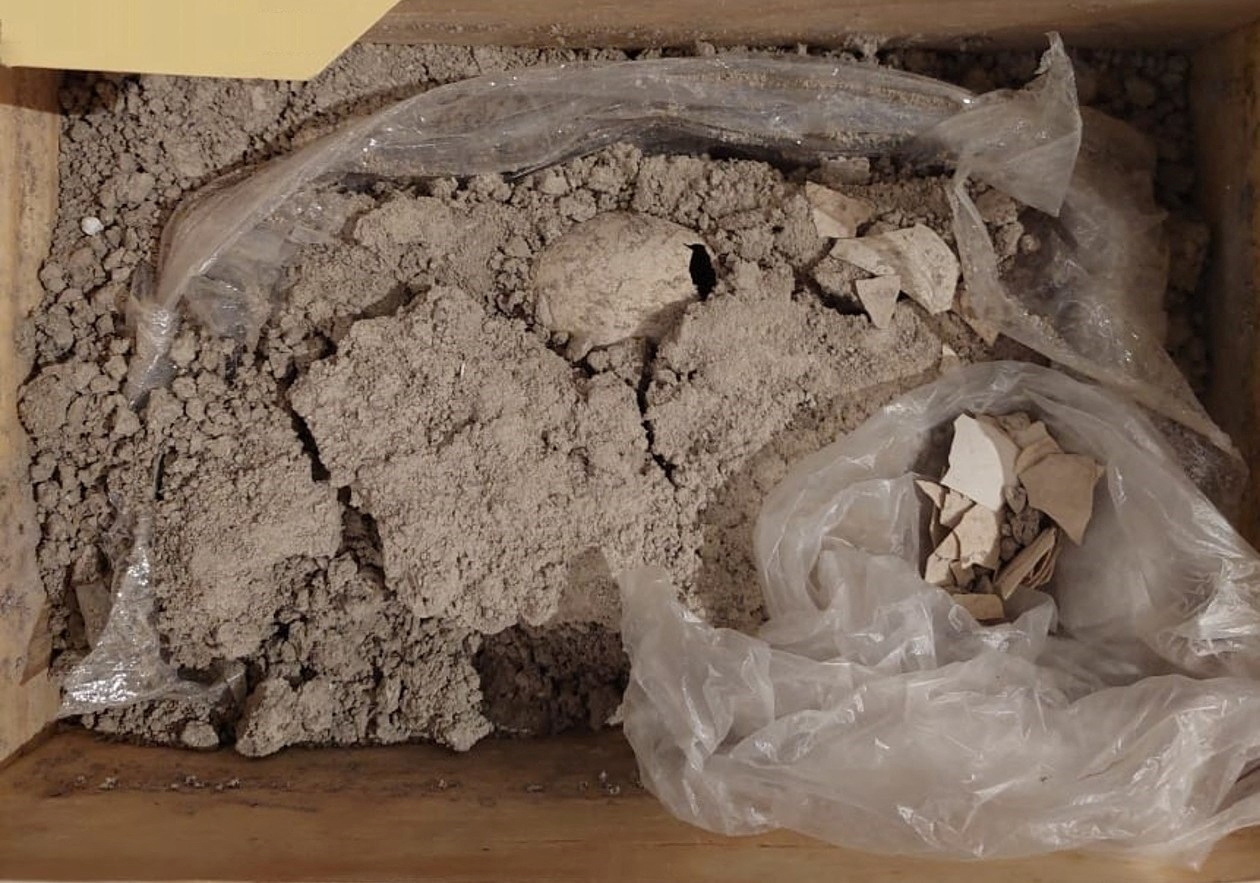
A view shows a part of an ancient flamingo fossil egg between 8,000 and 12,000 years old was uncovered at a busy construction at the new Felipe Angeles airport, in Zumpango, in the State of Mexico, Mexico, in this photo released and distributed on August 3, 2023 by Mexico's National Institute of Anthropology and History (INAH)/Handout via REUTERS
– DW – 08/03/2023
An ancient flamingo fossil egg between 8,000 and 12,000 years old has been discovered at a construction site for a new airport in Mexico, officials from the Latin American country said.
The remarkably preserved egg from the Pleistocene period is extremely rare, say archaeologists on the team that made the find. This is the first discovery of its kind in the flamingo family. Phoenicopteridae in America, and only the second in the world, as reported on Wednesday by the National Heritage Institute of Mexico (INAH).
Pleistocene fossil
The Pleistocene geological epoch, the most recent Ice Age, began 2.6 million years ago and ended about 11,700 years ago. The flamingo egg fossil was found at a depth of 31 centimeters, amidst clay and shale, during the construction of the new Felipe Ángeles airport in the State of Mexico, said INAH archaeologists in an article published in the journal Historical Biology.
The fossil egg implies that the area was the site of a shallow lake between 8,000 and 33,000 years ago, according to Mexican scientists, and that flamingos once lived in central Mexico.--
The present American flamingo species, known for its bright pink feathers, today inhabits mainly South America, the Caribbean, the Yucatan Peninsula, and the southeastern coast of the United States.
Edited with information from Reuters and Historical Biology
An ancient flamingo fossil egg between 8,000 and 12,000 years old has been discovered at a construction site for a new airport in Mexico, officials from the Latin American country said.
The remarkably preserved egg from the Pleistocene period is extremely rare, say archaeologists on the team that made the find. This is the first discovery of its kind in the flamingo family. Phoenicopteridae in America, and only the second in the world, as reported on Wednesday by the National Heritage Institute of Mexico (INAH).
Pleistocene fossil
The Pleistocene geological epoch, the most recent Ice Age, began 2.6 million years ago and ended about 11,700 years ago. The flamingo egg fossil was found at a depth of 31 centimeters, amidst clay and shale, during the construction of the new Felipe Ángeles airport in the State of Mexico, said INAH archaeologists in an article published in the journal Historical Biology.
The fossil egg implies that the area was the site of a shallow lake between 8,000 and 33,000 years ago, according to Mexican scientists, and that flamingos once lived in central Mexico.--
The present American flamingo species, known for its bright pink feathers, today inhabits mainly South America, the Caribbean, the Yucatan Peninsula, and the southeastern coast of the United States.
Edited with information from Reuters and Historical Biology
No comments:
Post a Comment